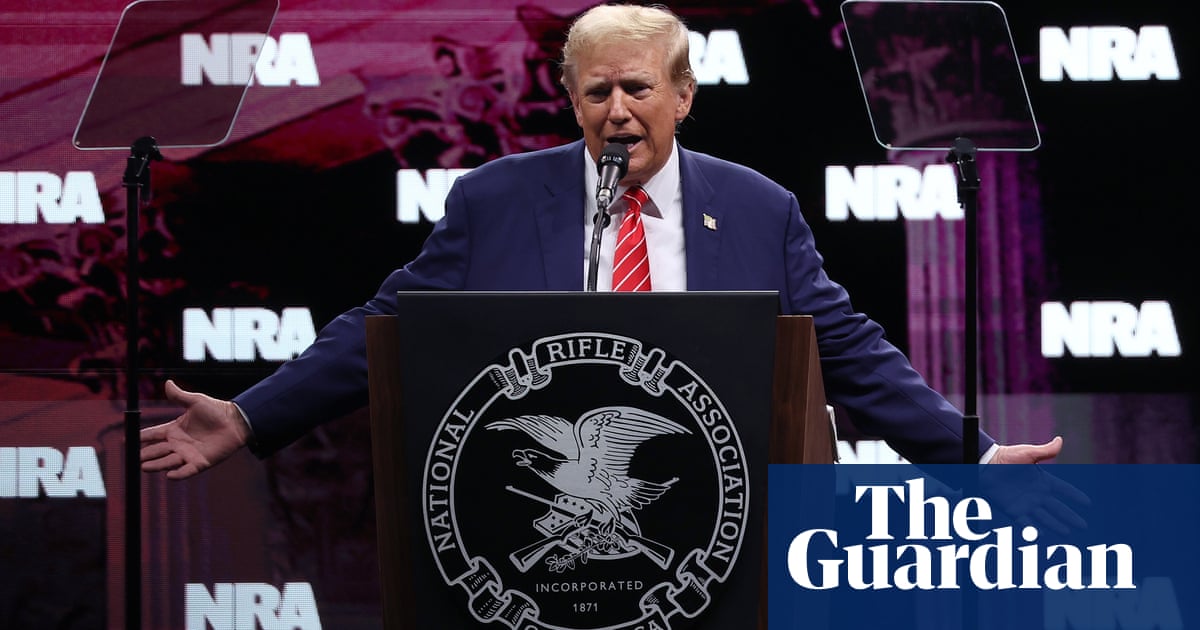The deadly New Year’s Day terrorist attacks in New Orleans and Las Vegas have brought renewed attention to the scourge of extremism in the US military, but efforts to tackle it wilted in the later years of the Biden administration, and are unlikely to be revived once Donald Trump begins his second term this month.
Both the New Orleans vehicle attack that killed 14, and the explosion of a Tesla Cybertruck outside a Trump hotel in Las Vegas in which the driver died, were perpetrated by discharged or serving members of the armed forces.
Though investigators have yet to officially link the events, they follow a pattern of active or veteran military personnel involvement in acts of domestic terrorism, including the 6 January 2021 Capitol riot; a white supremacist rally in Charlottesville, Virginia, in 2017; and the 2009 mass shooting at the former Fort Hood army base in Texas that killed 13.
In response to the series of deadly events, defense secretary Lloyd Austin promised to tackle longstanding failures by the US military to address the problem. In 2021 he announced a series of initiatives, including a working group to study white nationalism and other extremist behavior within the defense department, and the commissioning of an independent report to review the issue and make recommendations.
The efforts, however, fizzled. Congressional Republicans effectively killed the Countering Extremism Working Group in December 2023, starving it of funds in the annual defense authorization bill, months after CNN reported the Pentagon group had “vanished virtually without a trace” because of what analysts said was a concerted Republican “war on woke”.
Its demise, which was never publicly announced, came just weeks after the publication of a report to Congress by the inspector general of the US defense department that detailed 183 investigations of alleged extremism within military ranks.
Dozens of the investigations involved allegations of military members advocating, engaging in or supporting terrorism in the US or overseas, while 14 army investigations related to “advocating or engaging in unlawful force or violence to achieve goals that are political, religious, discriminatory, or ideological in nature”.
The independent report that Austin commissioned, by the Virginia-based Institute for Defense Analyses (IDA), was eventually published in December 2023, 18 months behind schedule, and quickly became the subject of controversy.
It found “no evidence that the number of violent extremists in the military is disproportionate to the number of violent extremists in the US as a whole”, and “no evidence of violent extremist behavior by department of defense civilians”.
Republicans seized on the report as “proof” that the media had colluded with Democrats to create a false narrative about the existence of extremism in the military, while the Republican bloc of the House armed services committee posted to X, then known as Twitter, that Joe Biden had “wrongly targeted our servicemembers with a divisive and political witchhunt”.
But in a November 2024 investigation, the Associated Press found that the IDA report included data two years out of date, “grossly undercounted” the number of serving military and veterans arrested for the 6 January attack, and “provided a misleading picture of the severity of the growing problem” of military extremism, the AP said.
An IDA spokesperson said its report was delivered to the defense department in June 2022. “IDA stands behind the rigor of the analysis and remains confident that the findings, including with regard to the prevalence of violent extremism in the DoD, were solidly based on the best data available at the time the work was conducted,” the group said in a statement.
The defense department did not respond to a request for comment.
Heidi Beirich, chief strategy officer and co-founder of the Global Project Against Hate and Extremism, said the Biden administration began with good intentions to tackle extremism in US military ranks, and made progress in several areas, but was ultimately unable to deliver verifiable progress.
“There were positives, introducing a tattoo database to screen recruits, and tightening up the security clearance process. They created a definition for extremism, and regulations in the army, marines and navy to ban fundraising for, or liking extremist groups on social media,” she said.
“But the issue is enforcement. We have no idea if these things are getting done, how many people have been sanctioned for these things? We don’t have good data from inside the DoD, we have no good information, really, about levels of extremism within the military.”
Beirich said the issue became “a political football” for Republicans, and that she feared the situation would become worse if Pete Hegseth, Trump’s controversial nominee for defense secretary, was confirmed.
“They started having conversations about how you’re smearing the military when you even talk about extremism, which is most evident with Hegseth saying that rooting out extremists is essentially a scam, or some kind of woke,” she said.
“It’s depressing that this problem looks like it’s not going to be taken seriously, and we’re probably going to have more incidents of terrorism from veterans or active duty. The American public is going to be more at risk.”
Other analysts say that tackling the issue is not just the responsibility of the defense department.
“A lot of the individuals who commit these acts are primarily veterans, and often honorably discharged,” said Matt Dallek, a political history professor at George Washington University and author of Birchers: How the John Birch Society Radicalized the American Right.
“The question is how does the government, particularly the Department of Veterans Affairs, try to prevent this sort of radicalization? How do they address the wider problems and challenges that veterans face, access to healthcare, mental health care, readjusting to civilian society and finding gainful employment?
“Although many of these cases may be different, it’s perhaps not all that surprising that a couple of decades post 9/11, a couple of decades of US war in Afghanistan and Iraq, we’re seeing at least some of these incidents of radical association, maybe anger at the US government and military, anger at the way the wars were conducted.”

 German (DE)
German (DE)  English (US)
English (US)  Spanish (ES)
Spanish (ES)  French (FR)
French (FR)  Hindi (IN)
Hindi (IN)  Italian (IT)
Italian (IT)  Russian (RU)
Russian (RU)  2 days ago
2 days ago
























Comments